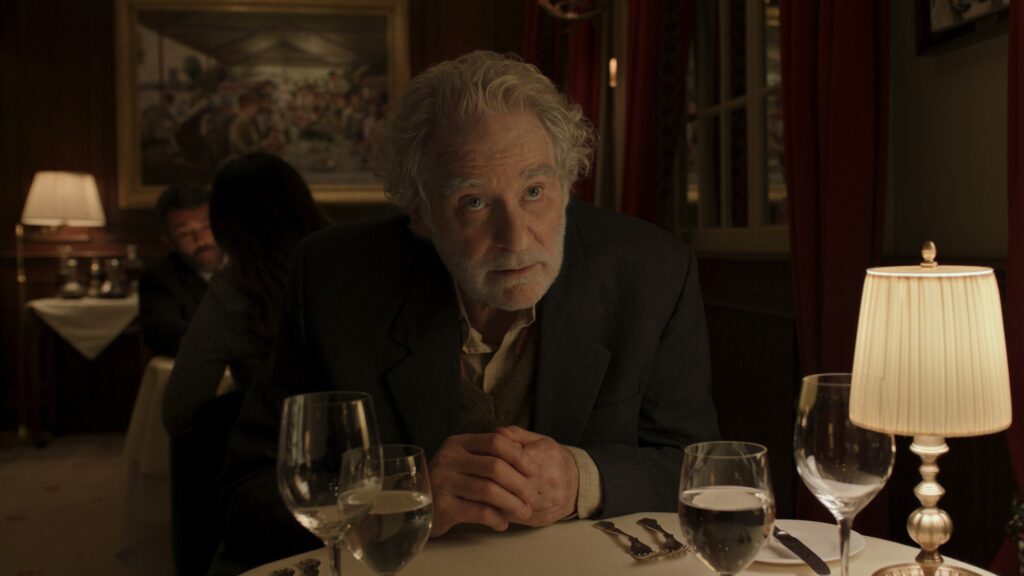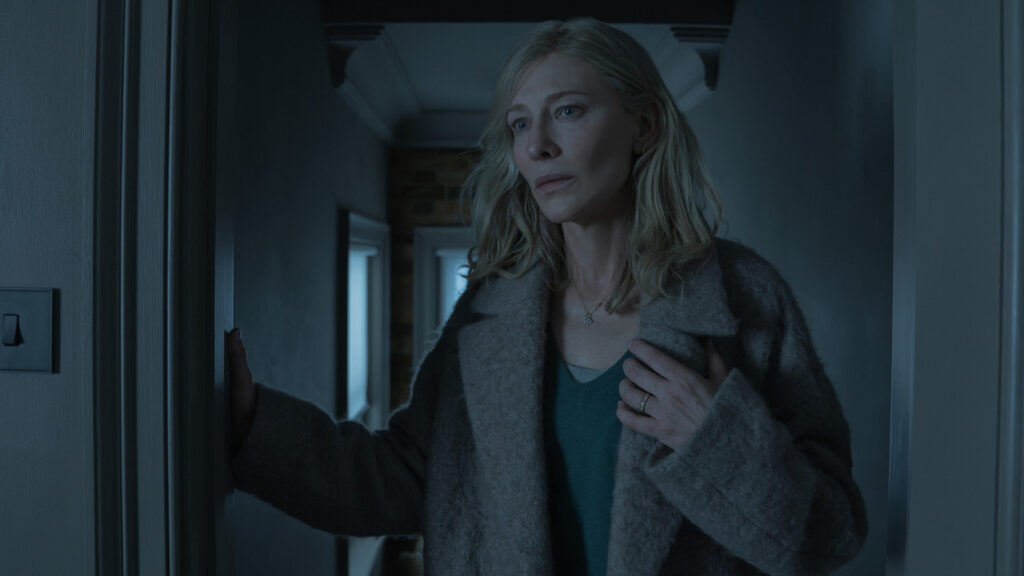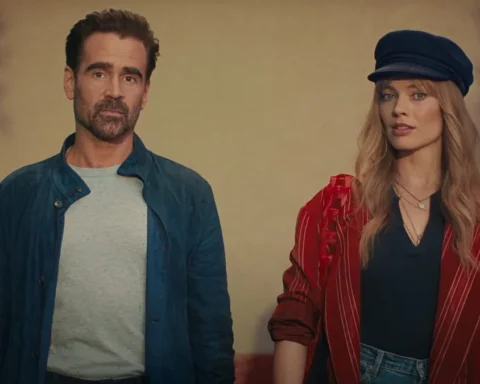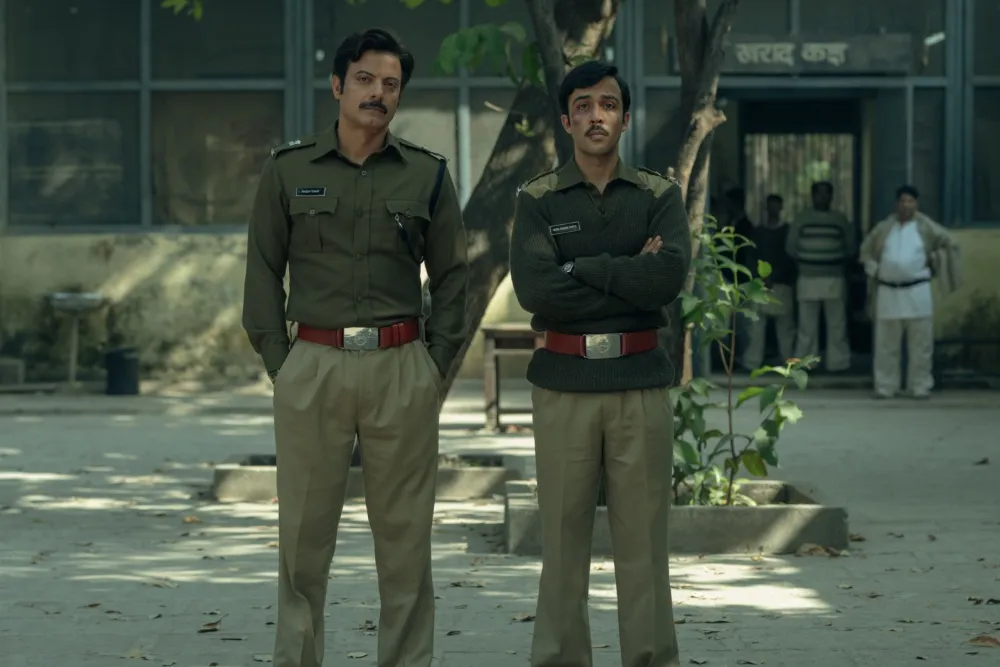It is evident that discovering a secret about a loved one, especially someone with whom we’ve shared a significant part of our lives, can be devastating. As we scrutinize the relationship, trust comes into question, and doubts begin to creep in. But how often do we verify that the information is accurate, or consider that there may be another side to the story? How often do we give the other person an opportunity to explain or share an alternate perspective? Based on Renée Knight’s titular novel Disclaimer, a psychological miniseries written and directed by Alfonso Cuarón explores these themes. Currently streaming on Apple TV+, it delves into the complexities of trust, perception, and the hidden truths that can reshape our understanding of those closest to us. By exploring obsessions with love, jealousy, the male ego, and the pleasures of activities like eating, drinking alcohol, and smoking, Cuarón’s oeuvre blends incisive observation with subtle drama. Shots, motifs, objects, dialogue, and events recur, often transformed in their second appearances to reveal a deeper meaning. There’s an aching emphasis on loss, yearning, and regret, creating an atmosphere reminiscent of a delicate, contemplative style. Even when each of the episodes twists and rewinds time with flashbacks, the emotional clarity remains lucid.
Catherine Ravenscroft (Cate Blanchett) is an award-winning journalist who lives in a posh apartment in London, with her husband, Robert Ravenscroft (Sacha Baron Cohen), and runs a corrupt non-profit organization. Their son, Nicholas Ravenscroft (Kodi Smit-McPhee), does not live with them at Catherine’s insistence and moves from one job to another. Their seemingly happy family is turned upside down when Catherine receives a package containing a book titled The Perfect Stranger. Shocked by what she reads, Catherine burns the book before finishing it. When caught by Robert in the act, she tells him that she believes the story to be about her. Through a series of flashbacks, it is revealed that the book was sent to Catherine by Stephen Brigstocke (Kevin Kline), a retired teacher mourning the deaths of his wife, Nancy (Lesley Manville), and son, Jonathan (Louis Partridge). While going through Nancy’s belongings, Stephen accidentally discovers a manuscript of the book written by his deceased wife. He also comes across a collection of photos taken by Jonathan during his trip to Italy two decades ago. The photos contain intimate shots of a young Catherine. Believing that Catherine is responsible for his son’s death, Stephen sets out for revenge. He not only publishes the book but also sends it to Catherine, and later to Robert and Nicholas. Catherine, now entangled in a web of secrets and betrayal, awaits the repercussions of Stephen’s actions, unsure of how her life will unravel as the truth slowly comes to light.

Cuarón tells his story with unwavering fairness, driven by a profound sense of empathy. While certain plot points may test our own biases, we recognize his purpose—and perhaps he is justified in doing so. Creating such a deeply compassionate miniseries, amid a wave of formulaic series trying to tick boxes on various streaming platforms, Disclaimer speaks volumes about Cuarón’s courage and integrity as a filmmaker. The characters in the miniseries are modern people with modern problems. As the episodes progresses, terrible things unfold in a series of unintended consequences. Flawed characters behave aggressively, making desperate, impassioned appeals to each other, as the story presents countless shades of gray. Despite the angry denunciations of the various characters flying back and forth and the simmering grievances harbored between them, there is an underlying complexity to their motives and actions, leaving us to ponder the true weight of each choice. Class matters just as much as gender. Everyone is acutely aware of their rights and feels angered by injustices and slights. The women, in particular, bear a dual burden: not only must they find workable solutions, but they must also persuade the men around them to accept these solutions. The filmmaker builds up the tale one layer at a time, and in the end, Catherine becomes the central figure, silently burdened with pain and anger. She is the one upon whom a terrible, unspoken weight is to fall—a burden both emotional and moral. As the story unfolds like a thriller, Disclaimer brings to light the yawning gap between what is visible and what lies beneath the surface. Informed with disarming simplicity, the screenplay is also marked by psychological depth, which aids in sustaining audience interest in the plight of a woman in distress. With great power and finesse, the series transforms the misery befalling a vulnerable woman into a contemporary tragedy.
Cate Blanchett’s performance as the victim of a man’s malicious resolve to seek revenge for his son’s death is both powerful and heartfelt, bringing a devastating impact to the screen. She portrays Catherine with a quiet strength, carrying a profound inner resilience. We think we know her thoughts and intentions, yet we’re left questioning who she truly is. Leila George, as the young Catherine, brings a teasing quality to her character. She unabashedly displays her charm to woo a young man but never compromises her dignity. Her passionate scenes in one episode are sensuous and beautiful without being vulgar. Sacha Baron Cohen, as Robert, plays a man trapped in a desperate situation upon discovering a shocking secret about his wife. Although he carries a deeply hurt conscience, his desperation conceals his inner workings and moral code as he clings to the hope of avoiding this reckoning reality. Kevin Kline, portraying Stephen, an elderly man blinded by the urge to set things right, brings a cunning edge to his role. Yet he also earns our empathy, as his actions—while morally questionable—seem justified from his perspective. In addition to extracting solid performances from the leads, Cuarón casts actors like Lesley Manville, Louis Partridge, and Kodi Smit-McPhee in impactful supporting roles, allowing each to flesh out their characters without overstretching.

The cinematography by Emmanuel Lubezki and Bruno Delbonnel is understated and functional, blending naturalism with stylistic flourish. Cuarón’s visual approach—marked by long takes that prioritize realism over formal design and an observational camera that balances intimacy with detachment—is no less precise, especially in conveying the intricacies of his narratives. Adam Gough, handling the editing, seamlessly blends the story’s flow with a focus on the characters’ internal turmoil. The non-linear juxtaposition of scenes gives Disclaimer a rhythmic pace, even as the on-screen events lean toward minimalism. The bustling sounds of London, the waves on the beach, and other rich ambient sounds enhance the miniseries’s visual and auditory atmosphere, creating an immersive experience through thoughtful sound design.
In the final episode of the series, it feels as though the comfortable rug the filmmaker has laid beneath our feet is suddenly pulled away. The revelations are shattering, both for the characters and for us as viewers. However, the execution of the finale has a somewhat soapy feel; it could have been delivered with greater strength. Nonetheless, it gets the job done. The use of various voiceovers to present the characters’ perspectives works to a certain extent, though it doesn’t provide a fully logical experience. As a miniseries, Disclaimer is a richly crafted work, filled with poignant moments and a touch of irony, offering perceptive insights into contemporary life. It is a warmly compassionate viewing where subject and treatment are in near-perfect harmony, though there remains potential for an even stronger impact.






